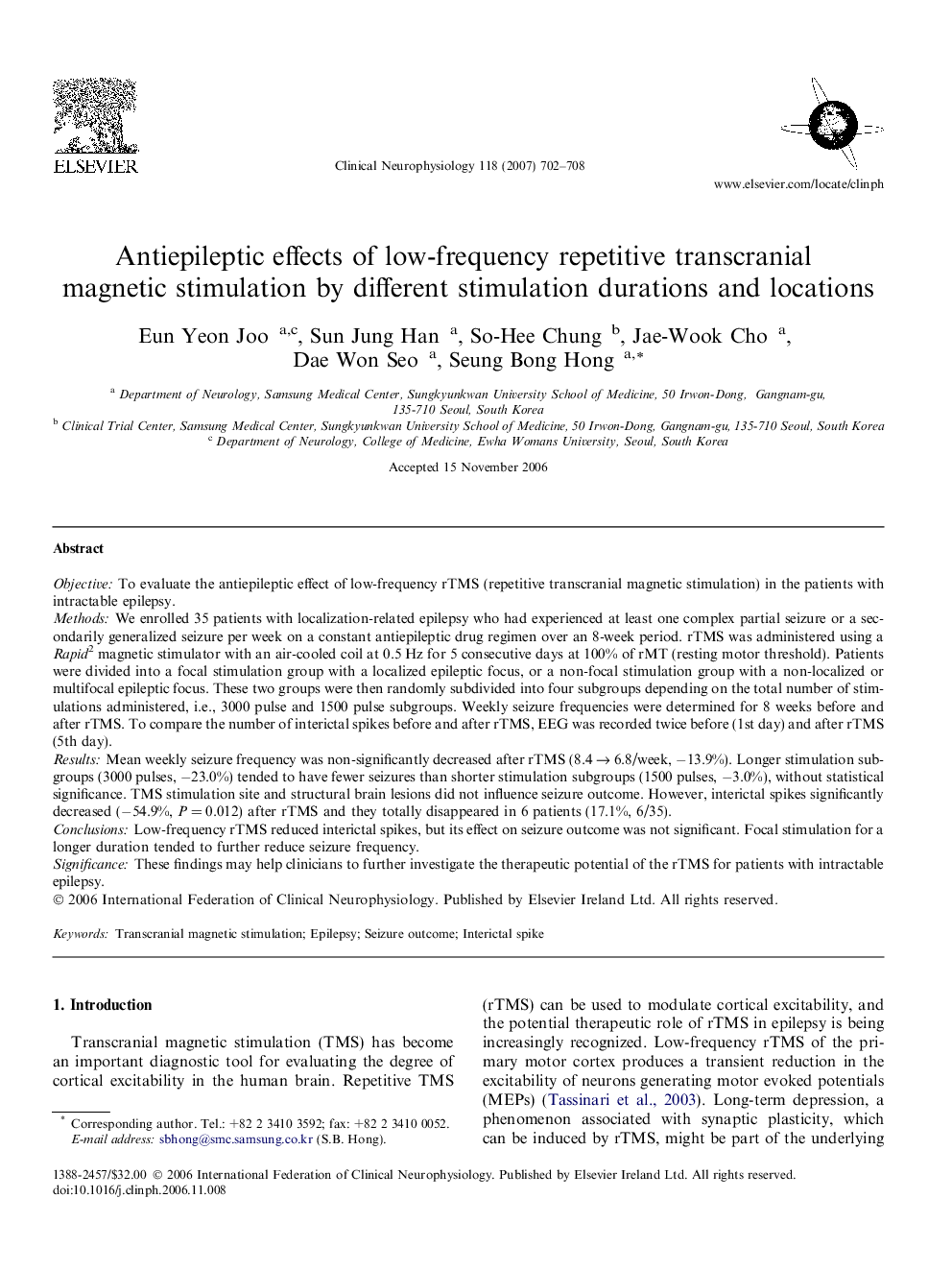| Article ID | Journal | Published Year | Pages | File Type |
|---|---|---|---|---|
| 3047856 | Clinical Neurophysiology | 2007 | 7 Pages |
ObjectiveTo evaluate the antiepileptic effect of low-frequency rTMS (repetitive transcranial magnetic stimulation) in the patients with intractable epilepsy.MethodsWe enrolled 35 patients with localization-related epilepsy who had experienced at least one complex partial seizure or a secondarily generalized seizure per week on a constant antiepileptic drug regimen over an 8-week period. rTMS was administered using a Rapid2 magnetic stimulator with an air-cooled coil at 0.5 Hz for 5 consecutive days at 100% of rMT (resting motor threshold). Patients were divided into a focal stimulation group with a localized epileptic focus, or a non-focal stimulation group with a non-localized or multifocal epileptic focus. These two groups were then randomly subdivided into four subgroups depending on the total number of stimulations administered, i.e., 3000 pulse and 1500 pulse subgroups. Weekly seizure frequencies were determined for 8 weeks before and after rTMS. To compare the number of interictal spikes before and after rTMS, EEG was recorded twice before (1st day) and after rTMS (5th day).ResultsMean weekly seizure frequency was non-significantly decreased after rTMS (8.4 → 6.8/week, −13.9%). Longer stimulation subgroups (3000 pulses, −23.0%) tended to have fewer seizures than shorter stimulation subgroups (1500 pulses, −3.0%), without statistical significance. TMS stimulation site and structural brain lesions did not influence seizure outcome. However, interictal spikes significantly decreased (−54.9%, P = 0.012) after rTMS and they totally disappeared in 6 patients (17.1%, 6/35).ConclusionsLow-frequency rTMS reduced interictal spikes, but its effect on seizure outcome was not significant. Focal stimulation for a longer duration tended to further reduce seizure frequency.SignificanceThese findings may help clinicians to further investigate the therapeutic potential of the rTMS for patients with intractable epilepsy.
